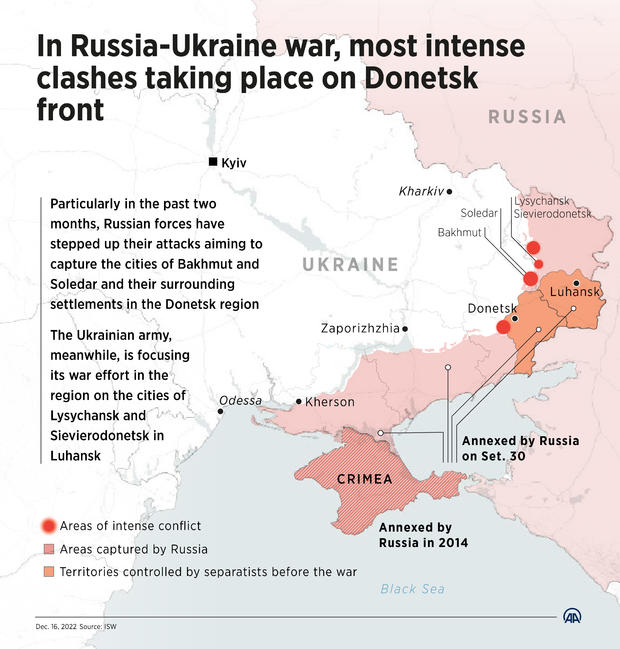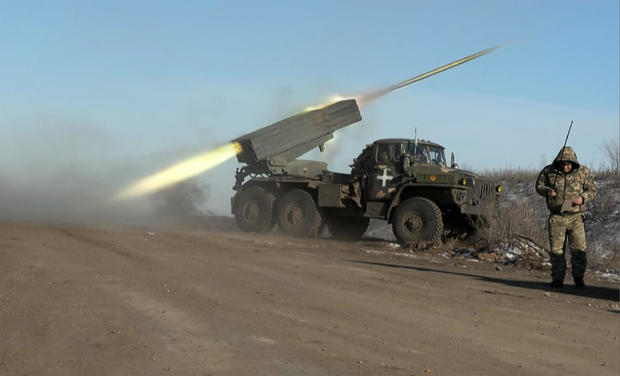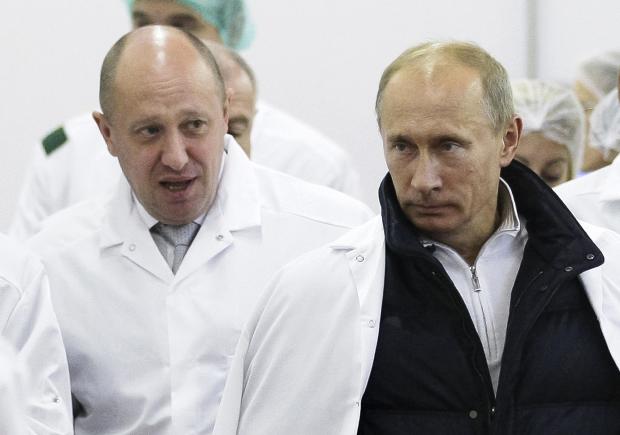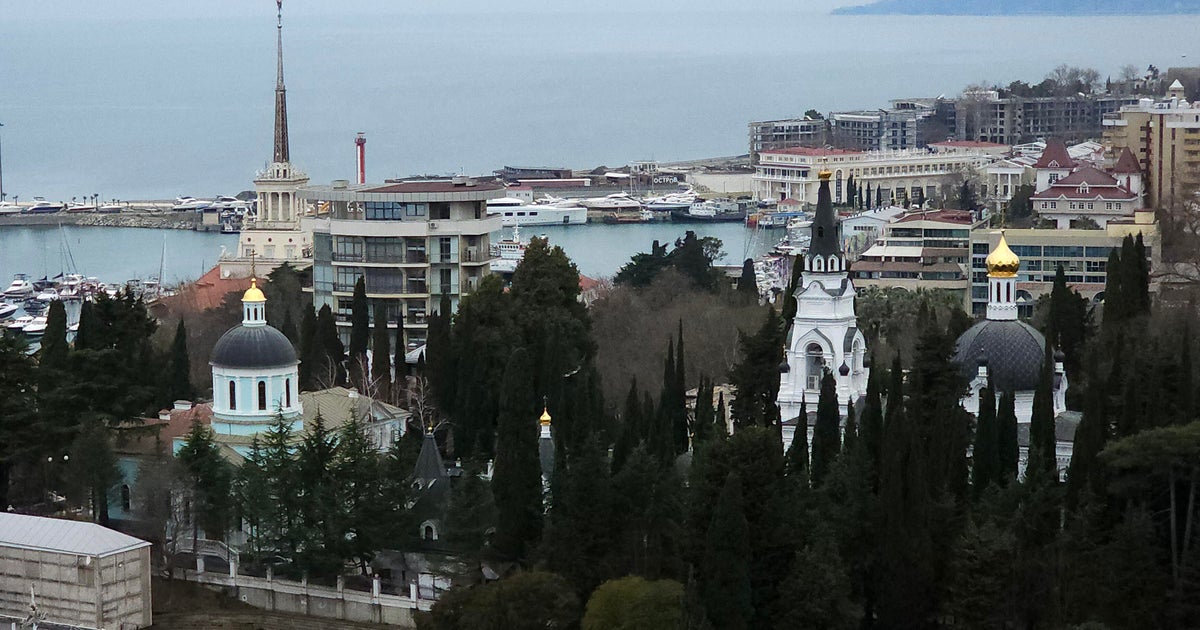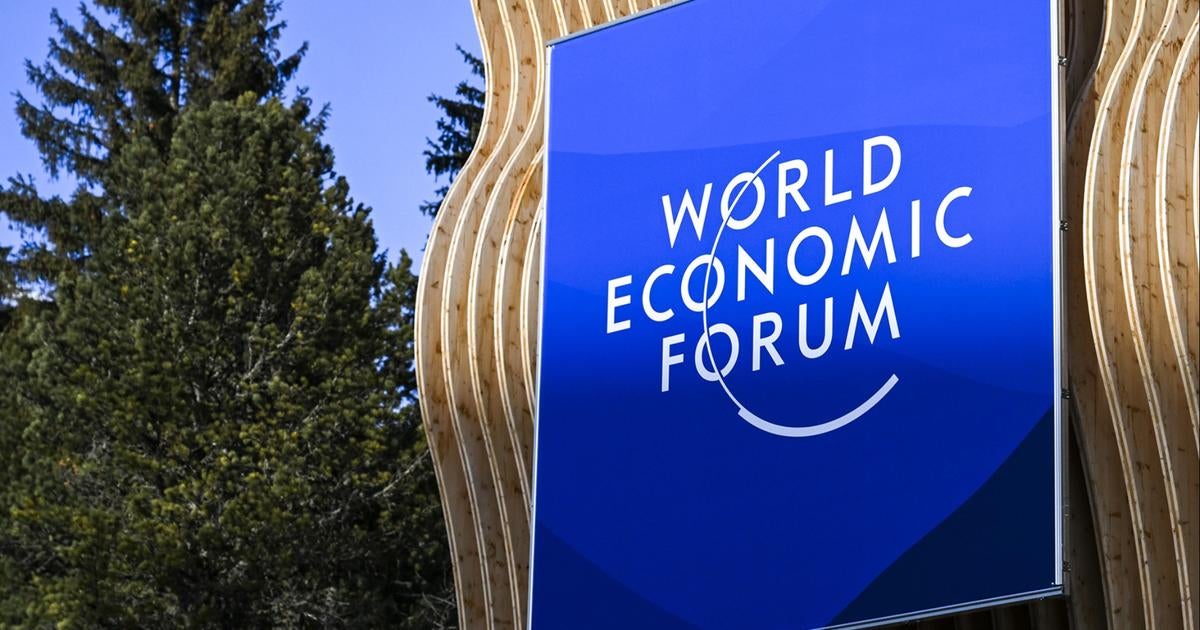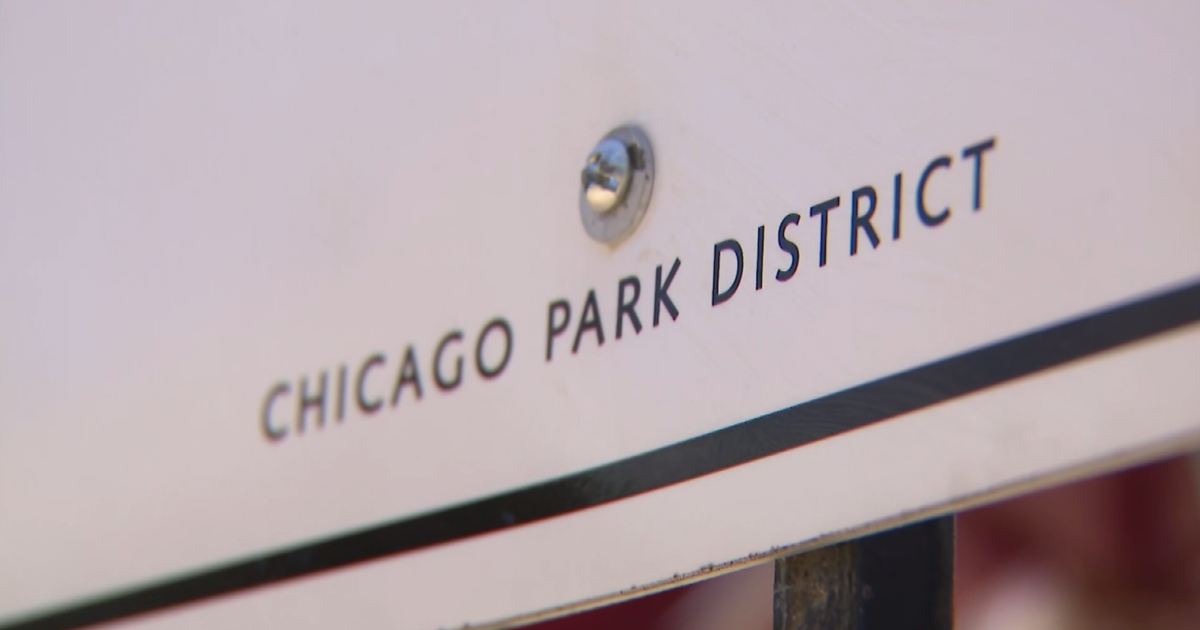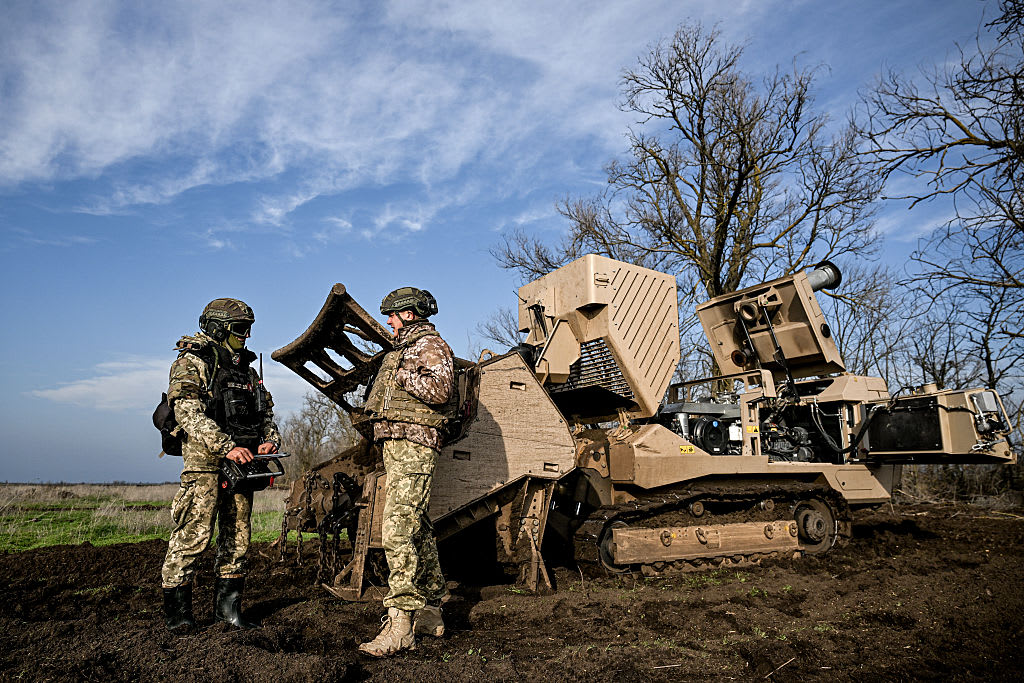Why the fight for Soledar has become the "most bloody battle" of Russia's war in Ukraine
The battle for conflict-battered Soledar in eastern Ukraine is one of the most ferocious of Russia's nearly year-long campaign, with Moscow desperate for a win and Kyiv determined to hold ground. Here's what you need to know about Soledar and why the battle for this small industrial city matters:
Location, location, location
Soledar is a small salt mining town in Ukraine's largely-Russian-occupied industrial Donetsk region. It had a pre-fighting population of only around 11,000 people.
Before it became the epicenter of fighting, it was known for being the largest salt mine in Europe, and its 120 miles of underground tunnels now lend a tactical advantage.
Soledar's name means "a gift of salt" in Russian.
Crucially, it is only about nine miles from the city of Bakhmut, a key prize for Russian troops. Seizing the city and neighboring Soledar would be vital to Moscow's main goal of wresting control over all of Donetsk.
Unlike previous urban battles in Ukraine, few civilians remain near the embattled towns of Bakhmut and Soledar.
Russian-backed separatists briefly took control of Soledar in 2014, when the current war really began in eastern Ukraine.
"Any victory is important"
Russia's capture of Soledar would allow it to sell a much-needed victory back home after months of humiliating setbacks and shrinking military aims.
"Any victory is important, especially because there hasn't been a victory in a while," Russian military analyst Anatoly Khramchikhin told AFP.
But observers of the conflict were divided over the strategic importance of Soledar.
One analyst, who spoke on the condition of anonymity, said that for Russia gaining Soledar would be a "victory with little strategic value."
For Ukraine, on the other hand, presidential adviser Mykhaylo Podolyak told AFP this week that Bakhmut — and with it Soledar — could be a launching pad to retake the larger city of Donetsk, which has been a Russian stronghold since 2014.
A battle with a "high price"
The fight also matters because the two sides have now invested heavily in it. Russia and Ukraine have said the fighting is fierce and conceded heavy losses.
"It is the most bloody battle of this war," Podolyak told AFP.
Yevgeny Prigozhin, the chief of Russia's private military group Wagner, said the battles were "heavy and bloody."
The Kremlin meanwhile said Russian advances have come at a "high price."
"Our guys do not spare a thought about their lives... to give these tactical successes," spokesman Dmitry Peskov said.
Neither side has given a precise casualty count, but satellite images that show the hollowed-out town point to the sweeping scale of the destruction.
Wagner mercenaries proving themselves
Nowhere is the growing role of Russian mercenaries in the Ukraine conflict more apparent than in Bakhmut and Soledar.
Prigozhin, a Kremlin-linked businessman, has seen his — and Wagner's — public profile skyrocket since Moscow sent troops to Ukraine in February last year.
He has claimed that Soledar was being stormed "exclusively" by Wagner fighters, in an apparent bid to boost Wagner's image.
Khramchikhin said the group's military role has been "quite important" and pointed to several advantages the it enjoys over the regular army:
"A higher level of training and at the same time fewer formalities or high-level bureaucracy characteristic of official armed forces, not only the Russian ones."
The analyst who spoke on the condition of anonymity however said that while the group's ranks have ballooned after a large-scale recruitment drive — including from Russian prisons — Wagner still does not play a "decisive" role in Ukraine more generally.
The battle for Soledar has also exposed growing rifts between Moscow's forces in Ukraine - made up of the Russian army, Wagner mercenaries and east Ukrainian separatist forces.
Confusion reigned after Wagner announced this week its forces captured Soledar.
But the Kremlin told reporters to hold for "official" announcements and the defense ministry countered the claim, saying fighting was ongoing.
Khramchikhin said it is "obvious" that Wagner and the defense ministry would compete, given that it is a private force.
Vasily Kashin, another analyst, said Wagner and the defense ministry still cooperate.
"They cannot do things completely independently from one another, they are part of the same force."
But he added that "nobody knows" how they "interact in reality."
Tensions between the defense ministry and Wagner go back to Moscow's military intervention in Syria, analysts said.
